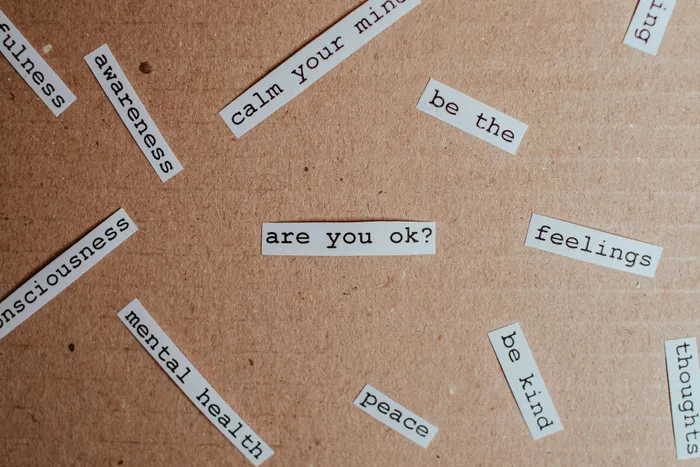How your wallet affects your mental health

Nearly 70% of South Africans report that financial pressure significantly affects their mental health, creating a vicious cycle of money worries and psychological distress. Experts weigh in on breaking this cycle and protecting your well-being during financial hardship.
Image: File
A lack of money doesn't just adversely affect your ability to spoil yourself, such as a dinner out, or pay bills, it also eats into your mental well-being and can be the cause of depression so great that people sometimes kill themselves.
1Life recently ran a poll that revealed just how serious this issue has become. Nearly 7 in 10 of the South Africans who took part said that financial pressure significantly affects their mental health. Another 10.5% admitted that their money worries are impacting their loved ones too.
Hayley Parry, money coach and facilitator at 1Life's Truth About Money, tells Personal Finance during Mental Health Awareness Month that the “psychological link between our financial wellbeing and mental health is deep, far deeper than most of us care to admit”.
Parry notes that “medical research has shown that financial stress and hardship are closely associated with higher rates of depression, anxiety, and even suicide”.
The UK's Money and Mental Health Policy Institute has compiled figures that dig deeper into the situation. Its research found that almost half of all people in what it calls problem debt also have a mental health problem. In addition, it found that people who were already battling mental illness saw that situation exacerbated when they faced financial stress.
The converse is also true, the Institute found, noting that a fifth of people with mental health problems are in problem debt. It is, the research shows, a vicious cycle.
Brett Caminsky, Atlas FD, asks: “What if managing your money felt less like a burden and more like a deliberate act of self-care? Financial well-being and mental well-being are two sides of the same coin.”
Parry says 1Life's findings on financial and mental wellness “hit home for me because I see every day how financial anxiety impacts lives. It affects our sleep, our relationships, our work performance, and even our confidence.”
Sanlam's 2025 Benchmark Survey notes that 44% of members included in this year's survey say debt causes financial stress and, among other things, almost a third see it as a burden that blocks financial freedom.
“This paints a clear picture: members are under pressure, and they're looking for support, not just in managing debt, but also in building financial resilience,” the report states.
A direct result of financial stress is that it amplifies workplace dissatisfaction and overall well-being issues, says Sanlam. “It contributes to mental health decline, fuelling anxiety, depression, and sleep disorders, triggering physical ailments such as hypertension and heart disease,” the financial services company says.
In another example of the vicious cycle, Sanlam says that financial strain reduces productivity by diverting focus from work and heightening absenteeism, which in turn exacerbates retirement insecurity by undermining financial planning and savings.
“Financial stress isn't just about money. It's also about mental health, family stability, and quality of life,” says Robyn Edwards, senior marketing and brand manager at Finchoice. “When people feel overwhelmed and out of control, the anxiety can be crippling. But, with the right tools, it's possible to take back control.”
Edwards says that many people feel anxious because they don't have a clear picture of their finances. She advises individuals or couples to start by writing down what they earn, what they owe, and what their monthly commitments are.
“This clarity is powerful. Simple steps such as tracking expenses, cutting small costs, and avoiding unregulated advice can reduce stress levels significantly,” Edwards says.
Rory Brachner, founder of Doshguide, notes that if your financial well-being isn't in a good place, or at least moving in the right direction, it's very difficult for your overall well-being and mental health to thrive. He advocates dedicating time each week to financial health.
“You can get away with unhealthy habits physically, such as skipping exercise, overeating, or overindulging, for a long time, but eventually, they catch up with you. Financial health works the same way. Ignoring it might feel fine for a while, but over time, unmanaged finances can compound stress and negatively impact your mental well-being,” says Brachner.
Caminsky adds that when people feel in control of their money, they feel more in control of their lives. “Financial education isn't just about numbers; it's about building the confidence to face the future with less anxiety.”
The truth is, it's almost impossible to feel mentally healthy when you're financially overwhelmed, says Parry. “That's why I believe: taking care of your money is taking care of your mind.”
Caminsky provides these tips to tackle financial stressors:
- Don't check your finances, but connect with them. Schedule a weekly 15-minute money date to calmly review your accounts. The goal isn't judgment; it's awareness. Knowing exactly where you stand reduces financial anxiety.
- Don't compare your wallet to others. Scrolling through social media and feeling like everyone is on a perfect vacation while you're packing your lunch? Comparing your financial chapter to someone else's chapter is a recipe for feeling inadequate and unhappy.
- Avoid emotional spending. Impulsive buying or using spending as a quick fix for a bad day is never a good idea. This emotional spending provides a fleeting high, followed by a crash of guilt and more stress, creating a vicious cycle. Do not convince yourself that a want is a need to justify the urge for retail therapy.
Next week, Personal Finance will look at the concept of financial wellness and offbeat ideas to improve your financial situation.
PERSONAL FINANCE